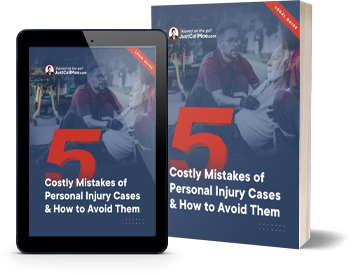A traumatic brain injury (TBI) can be a life-altering event. It can change your world in the blink of an eye, leading to significant physical, emotional, and financial hardship. If you or a loved one has experienced a TBI due to someone else’s negligence in Orlando, Florida, seeking legal representation from a skilled Orlando brain injury attorney can make a world of difference in your path to recovery.
Understanding Traumatic Brain Injuries
TBI can result from any blow or jolt to the head that disrupts normal brain function. Common causes include car accidents, slip and falls, assaults, and sports injuries. The consequences can range from mild (concussion) to severe (coma or even death), depending on the impact’s severity.
The Role of a Brain Injury Attorney
A qualified brain injury attorney can guide you through the complex legal process, ensuring your rights are protected, and you receive the maximum compensation possible. Here’s how:
- Case Evaluation: An experienced attorney will first evaluate your case, determining if you have a valid claim.
- Gathering Evidence: They will collect relevant evidence to substantiate your claim. This may include medical records, accident scene photographs, witness testimonies, and expert opinions.
- Claim Calculation: Your attorney will accurately calculate the compensation you deserve, considering medical expenses, lost income, pain and suffering, and future care costs.
- Negotiation: Your attorney will negotiate with insurance companies on your behalf, ensuring you receive a fair settlement.
- Litigation: If negotiations fail, your attorney will represent you in court, presenting a compelling case to obtain the justice you deserve.
10 FAQs About Traumatic Brain Injuries
Below are ten frequently asked questions about traumatic brain injuries, providing valuable information for victims and their families.
1. What are common symptoms of a TBI?
Symptoms can vary widely based on the injury’s severity but may include headaches, confusion, blurred vision, dizziness, behavioral changes, and difficulty with concentration or memory.
2. How is a TBI diagnosed?
Diagnosis typically involves a physical examination, cognitive tests, and imaging tests like CT scans or MRIs.
3. Can you fully recover from a TBI?
Recovery depends on the injury’s severity and the individual’s overall health. While some people may fully recover, others may experience long-term effects.
4. What kind of treatments are available for TBI?
Treatments can include medication, surgery, physical therapy, occupational therapy, and counseling.
5. Can a mild TBI have serious long-term effects
Yes. Even a mild TBI (like a concussion) can have serious long-term effects, such as post-concussion syndrome, causing headaches and cognitive problems.
6. Can you sue for a TBI?
Yes. If your TBI was caused by someone else’s negligence, you could file a personal injury lawsuit.
7. What damages can you claim in a TBI lawsuit?
You can claim for medical expenses, lost wages, pain and suffering, and potentially punitive damages if the defendant’s conduct was exceptionally reckless.
8. How long do I have to file a TBI lawsuit in Florida?
Florida law generally allows four years from the date of the injury to file a personal injury lawsuit.
9. Do I need a lawyer for a TBI lawsuit?
While you’re not legally required to have a lawyer, having a knowledgeable attorney dramatically increases your chances of receiving a fair settlement.
10. What should I look for in a brain injury attorney?
Look for an attorney with extensive experience in TBI cases, a successful track record, and excellent client reviews.
Navigating the aftermath of a TBI can be challenging, but you don’t have to face it alone. With the help of a skilled brain injury attorney at JustCallMoe, you can focus on your recovery while your legal team focuses on securing the compensation you deserve. Contact us today!

 (866) 225-5663
(866) 225-5663



